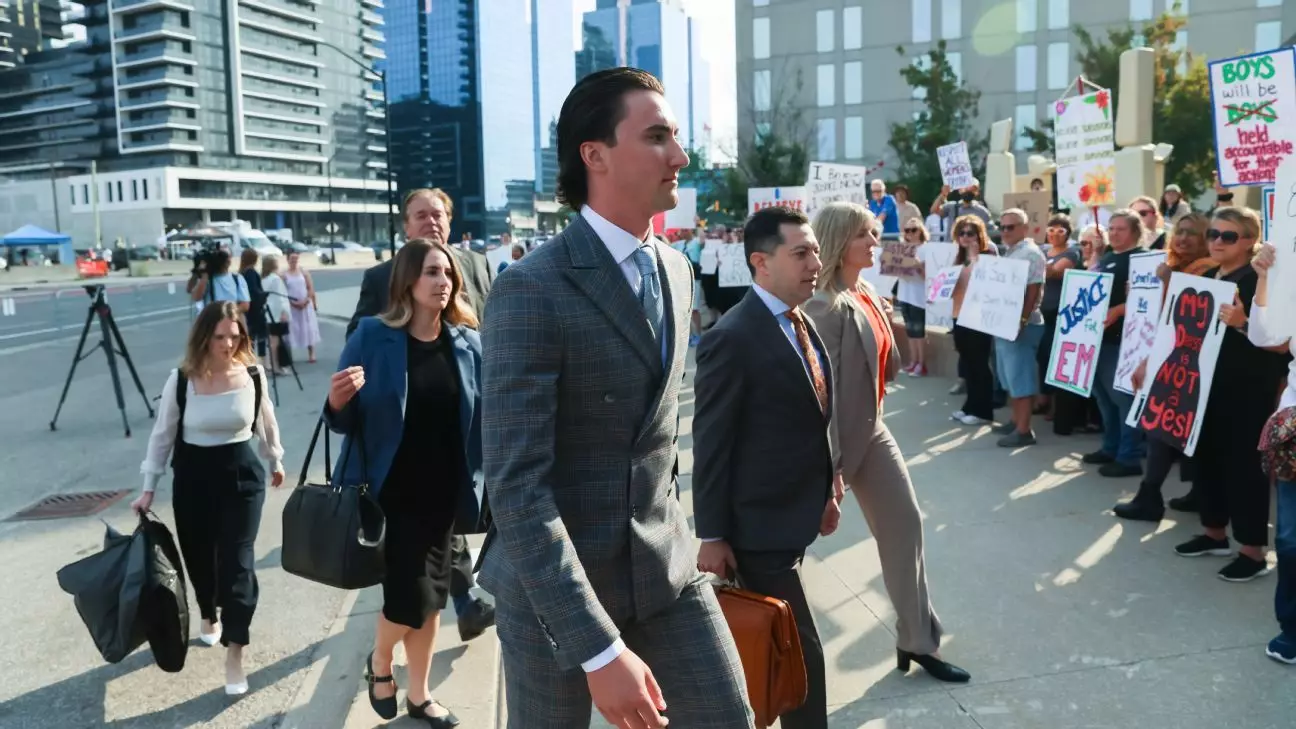In recent months, the legal saga involving five former junior hockey players has illuminated the intricate layers of justice, reputation, and institutional response. While the Ontario Superior Court made a definitive ruling of acquittal, the aftermath reveals a landscape riddled with ambiguity and societal tension. The absence of an appeal from the Canadian government signals a decisive moment—yet it also raises questions about the broader mechanisms of justice and accountability. Being acquitted does not simply equate to innocence; rather, it exposes the blurry intersection where evidence, credibility, and public perception collide.
The judge’s detailed critique of the complainant’s testimony underscores a fundamental issue prevalent in sexual assault cases: the challenge of assessing credibility amid emotionally charged narratives. The court’s findings that her account was marred by inconsistencies and exaggerated intoxication points to the importance of rigorous evidentiary standards. However, these judgments inevitably fuel a debate—does an emphasis on credibility sometimes overshadow genuine claims? Or does it serve as a necessary safeguard against false accusations? The answer is complex, and in this instance, it leaves the public grappling with the fine line between justice and doubt.
Institutional Responses: The NHL’s Dilemma
The National Hockey League’s initial stance reflects a cautious approach, emphasizing the disturbing nature of the allegations without rushing to judgment about guilt. Their decision to keep the players off the ice—pending further review—signifies a responsibility to uphold a reputation free from association with misconduct. Yet, the league’s stance also appears somewhat disconnected from the legal outcome; while the court cleared the players, the NHL remains uncertain about their eligibility, hinting at a broader concern for image preservation and risk management.
Conversely, the NHL Players’ Association argues that these athletes deserve a chance to resume their careers, emphasizing a presumption of innocence until proven guilty in the court of law. Their perspective challenges the league’s cautious stance, highlighting inconsistencies between legal rulings and league policies. This disconnect underscores a persistent issue: professional sports organizations often operate on a different set of standards than judicial institutions, balancing public image, legal realities, and the rights of athletes.
The Societal Implications of High-Profile Legal Cases
Case studies like this serve as stark mirrors reflecting societal attitudes toward justice, gender, and accountability. On one hand, the court’s rigorous scrutiny of the complainant’s testimony demonstrates a commitment to fairness and due process. On the other, it risks reinforcing skepticism toward victims in sexual assault cases, particularly when credibility becomes a focal point. These dual narratives—protecting the accused while ensuring victims are heard—highlight a societal dilemma: how to create an environment where truth prevails without perpetuating victim-blaming or fostering undue suspicion.
The reactions to the ruling encapsulate this tension vividly. The defense’s portrayal of the case as a “resounding vindication” stands in stark contrast to the complainant’s lawyer’s devastating view, which underscores that justice is rarely absolute or universally accepted. As society continues to wrestle with these complex issues, it becomes increasingly clear that the integrity of justice depends not solely on legal outcomes but also on how these outcomes influence societal perceptions and the future of trust in both institutions and their processes.


Leave a Reply